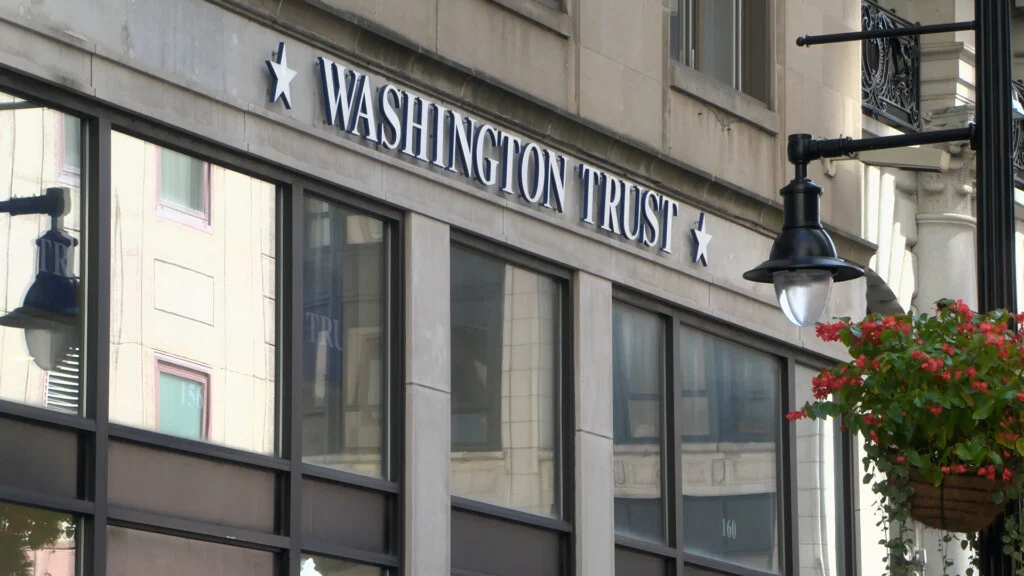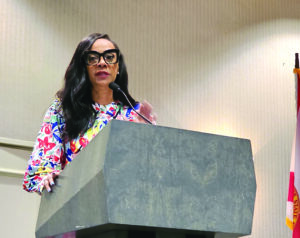Washington Trust agrees to pay $9m to resolve alleged redlining in Rhode Island
5 min read
An investigation by federal prosecutors found that the Westerly-based company has never located a single branch in any majority Black or Hispanic neighborhood
Rhode Island US Attorney Zachary Cunha and US Assistant Attorney General Kristen Clarke announced Wednesday that The Washington Trust Company has agreed to pay $9 million to resolve allegations that the bank had engaged in lending discrimination by redlining majority Black and Hispanic communities in Rhode Island for years.
Although Washington Trust describes itself as the “oldest community bank in the nation” and is the largest state chartered bank in Rhode Island, an investigation by federal prosecutors found that the Westerly-based company has never located a single branch in any majority Black or Hispanic neighborhood. Even when the bank expanded in 2016 beyond Washington County to the rest of Rhode Island, all of the 25 branches were located in majority-white areas.
Washington Trust’s business model relies on mortgage loan officers to generate loan applications and cultivate relationships, Cunha said. However, according to the federal; government’s complaint, the bank didn’t assign any mortgage loan officer to conduct outreach, advertise, or generate loans from majority-Black and Hispanic neighborhoods. Washington Trust had just two mortgage loan officers who spoke Spanish fluently and one left after less than a year which meant most of the bank’s loan officers were unable to provide credit service to Spanish-speaking applicants.
As a result, only about 2.4 percent of its reportable mortgage applications from 2016 through 2021 were from residents of majority Black and Hispanic neighborhoods. And even then, most of the applicants in those neighborhoods were white, Clarke said.
In comparison, other banks received nearly four times as many loan applications from majority Black and Hispanic neighborhoods in Rhode Island, Clarke said.
Redlining is an illegal practice in which lenders avoid providing credit services to individuals living in communities of color because of the race, color, or national origin of residents in those communities. “Redlining, whether it’s driven by overt animus or by knowingly avoiding the obligation to provide adequate and equal access to lending services … is unacceptable,” Cunha said. “It’s not just a violation of federal law, but it strikes at the heart of one of the core ways that individuals and families can build wealth, stability, and community commitment through investment and home ownership.”
Washington Trust knew as early as 2011 of its risk of redlining, from warnings coming from external assessments and its own compliance department, Cunha said. “But even with that information, we allege that no effective changes were made and that Washington Trust did not take adequate steps to remedy the situation and meet its legal obligations, and the effect was severe.”
In a statement, Washington Trust said it “vehemently denies the allegations and entered into this agreement solely to avoid the expense and distraction of potential ligation, and to allow the Bank to focus fully on serving the needs of its customers and communities.”
“We believe we have been fully compliant with the letter and spirit of fair lending laws, and the agreement will further strengthen our focus on an area that has always been important to us,” stated Edward O. “Ned” Handy III, Washington Trust chairman and chief executive officer. “Rhode Island has been home to Washington Trust for 223 years and our neighbors count on us to provide affordable loan opportunities no matter where they live.”
“We care about all of our communities across Rhode Island, and we demonstrate our commitment through a number of proactive state-wide and corporate initiatives,” added Handy. “For example, our Washington Trust RI Community Lending Program offers a variety of creative affordable loan opportunities, and our financial literacy and educational programs help potential borrowers prepare for home ownership. In addition, our dedicated team includes multi-lingual and minority community outreach and loan officers. We believe it is as a result of our proactive community efforts that we have steadily increased our lending in Majority-Minority Census Tracts as we’ve expanded our branch network.”
Cunha said that the problems were “a pervasive issue throughout the organization, and we place blame throughout the organization, and the organization as a whole is being held accountable.”
Under the proposed consent order, which is subject to court approval, Washington Trust has agreed to invest $7 million in a loan subsidy fund to increase access to home mortgages, improvements, refinancing, and equity loans and lines of credit for residents in majority Black and Hispanic neighborhoods in Rhode Island. The company agreed to spend $1 million on community partnerships to provide services that increase residential mortgage credit access, and another $1 million on advertising, outreach, consumer financial education and credit counseling in those neighborhoods.
“Every dollar will go either directly towards making loans available in previously underserved Rhode Island communities, or towards efforts to increase access to credit and lending in those communities,” Cunha said, “because the bottom line is that every Rhode Islander benefits when all of us, regardless of race, color, or background, had the opportunity to own their home, invest in their community, and build wealth for themselves and their family.”
Cunha said that the problems were “a pervasive issue throughout the organization, and we place blame throughout the organization, and the organization as a whole is being held accountable.”
Under the proposed consent order, which is subject to court approval, Washington Trust has agreed to invest $7 million in a loan subsidy fund to increase access to home mortgages, improvements, refinancing, and equity loans and lines of credit for residents in majority Black and Hispanic neighborhoods in Rhode Island. The company agreed to spend $1 million on community partnerships to provide services that increase residential mortgage credit access, and another $1 million on advertising, outreach, consumer financial education and credit counseling in those neighborhoods.
“Every dollar will go either directly towards making loans available in previously underserved Rhode Island communities, or towards efforts to increase access to credit and lending in those communities,” Cunha said, “because the bottom line is that every Rhode Islander benefits when all of us, regardless of race, color, or background, had the opportunity to own their home, invest in their community, and build wealth for themselves and their family.”






